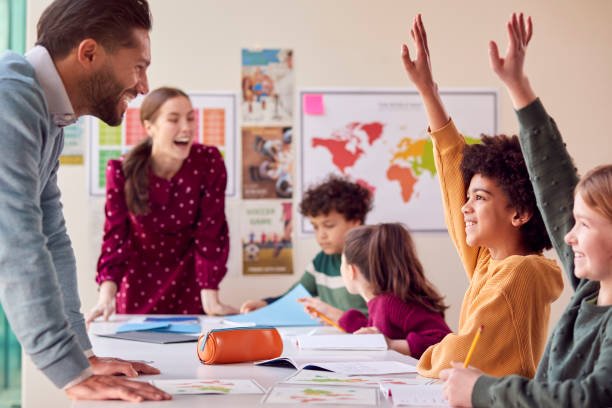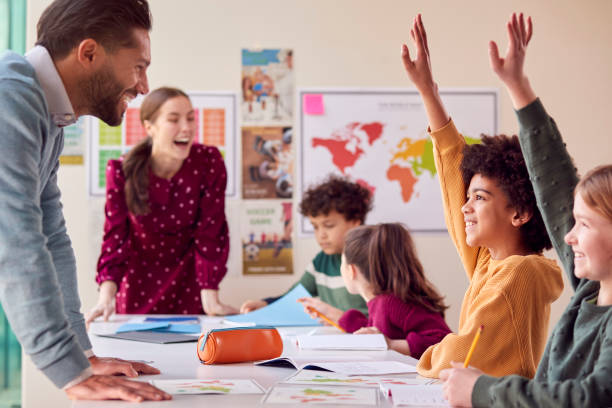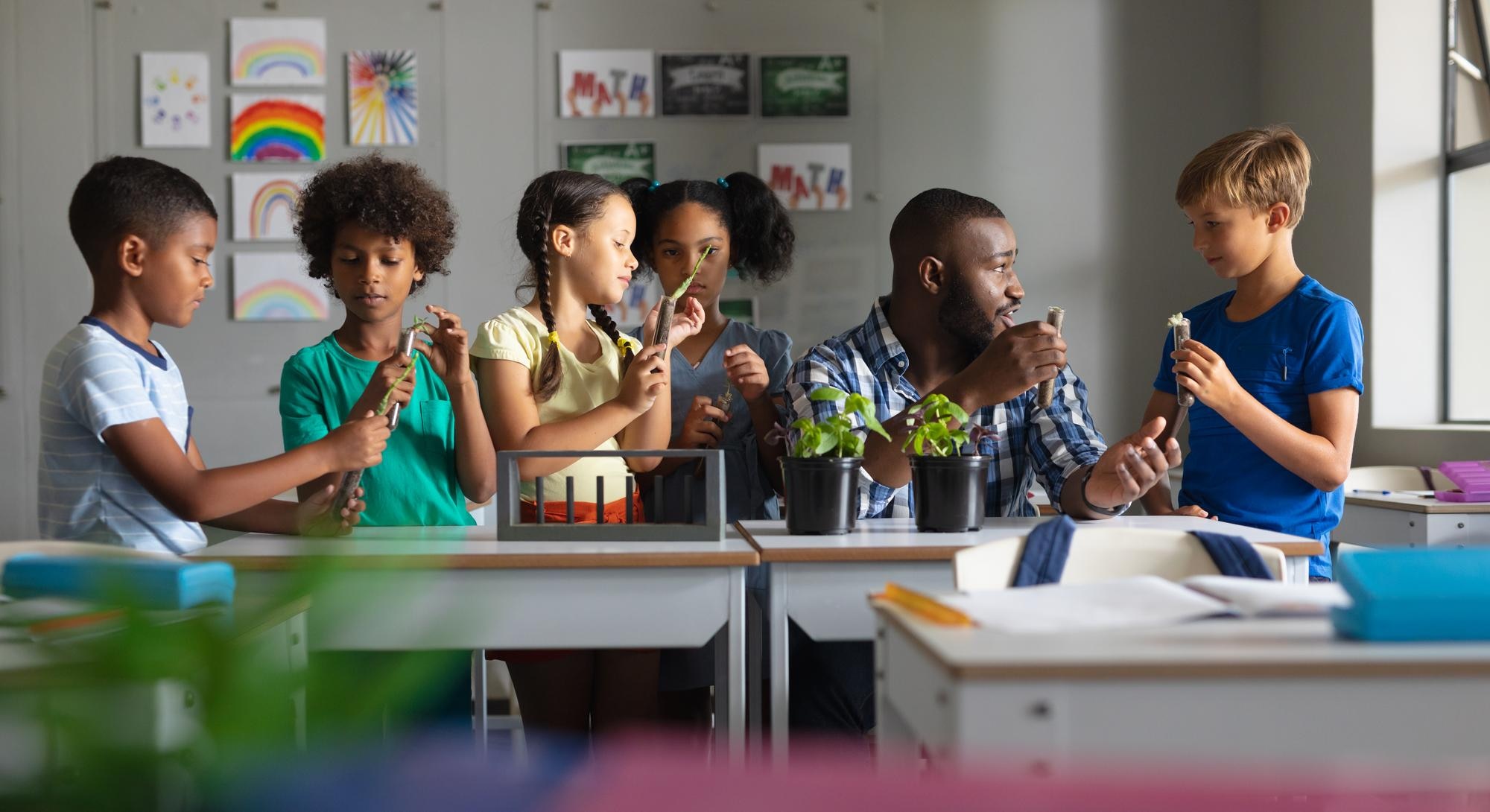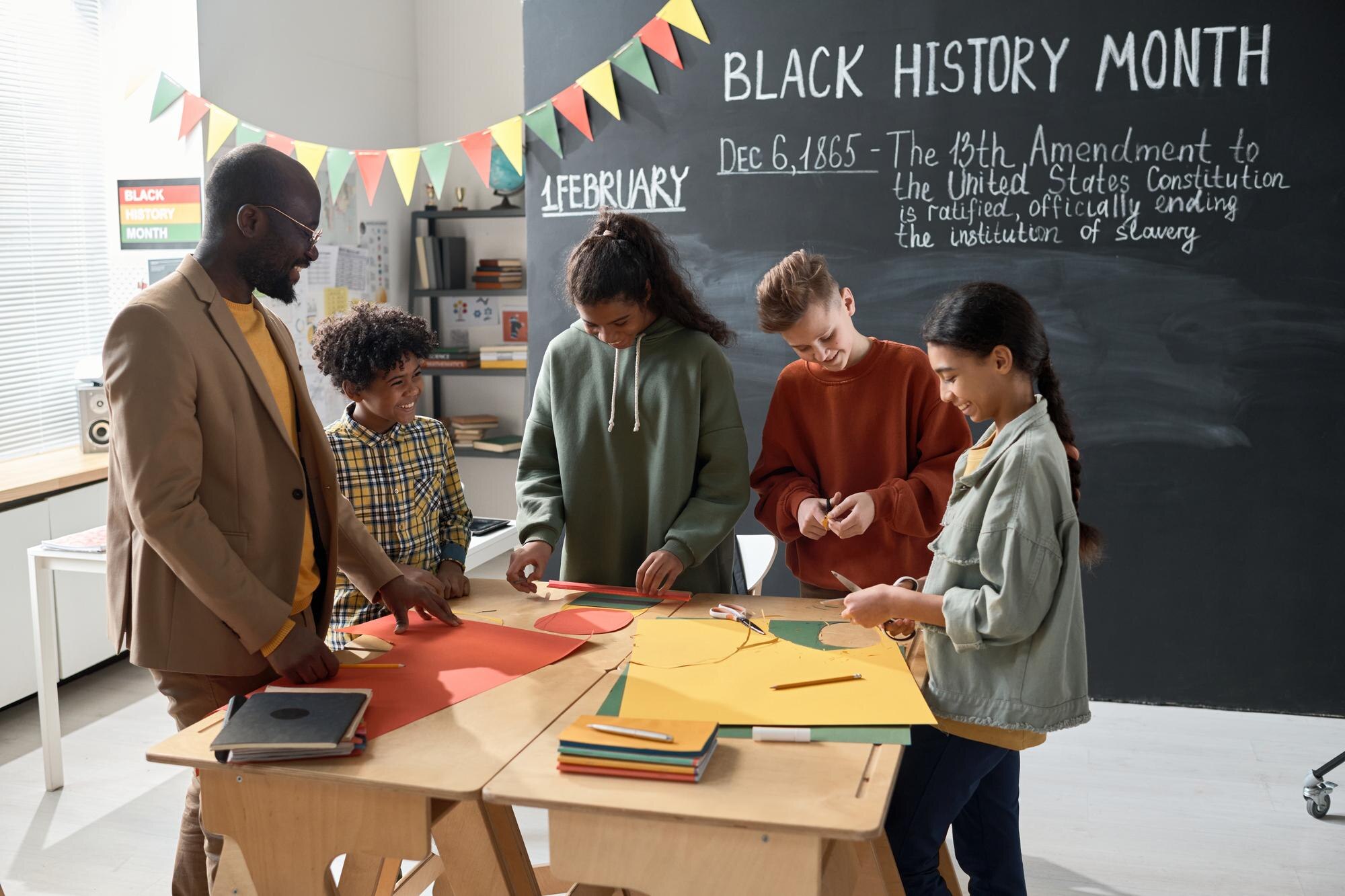
Group Of Multi-Cultural Students With Teachers In Classroom Putting Hand Up To Answer Question
Empowering Gifted Students: Top Strategies for Educators to Foster Resilience and Confidence
Gifted students often face emotional challenges that can feel like uncharted territory. As an educator, you hold the compass that can guide them through these storms, helping them build resilience and confidence along the way. Imagine seeing your students thrive, not just academically but emotionally, too. This post offers practical strategies to nurture their well-being and growth. Ready to empower your gifted students toward a brighter emotional future? Let’s begin this journey together. For more insights on developing resilience in gifted students, visit this resource.
Building Emotional Resilience

Building emotional resilience in gifted students is crucial for their overall development. This section explores the needs of gifted students and how educators can create an environment that nurtures resilience and encourages self-awareness and reflection.
Understanding Gifted Students’ Needs
Gifted students often have unique emotional needs. Understanding these needs is the first step in developing effective strategies to support them. They may experience heightened sensitivity, perfectionism, and asynchronous development. Recognizing these traits allows educators to tailor their approaches to each student.
For example, gifted students might struggle with social interactions due to their advanced thinking processes. They could feel isolated or misunderstood among peers. Educators must be aware of these dynamics and offer appropriate support.
Gifted students require emotional support that acknowledges their unique challenges.
They benefit from opportunities to connect with other gifted individuals, fostering a sense of belonging.
Open communication with educators and peers can help mitigate feelings of isolation.
By focusing on these needs, educators can create a supportive foundation for resilience. Learn more about strategies for parenting gifted children here.
Creating a Supportive Environment
A supportive environment is vital for building resilience. Educators can adopt several approaches to achieve this. First, creating a classroom culture that values diversity and individual differences encourages acceptance.
Encourage collaboration: Group activities can help gifted students learn teamwork and build friendships.
Promote open discussions: Create spaces where students feel comfortable sharing their thoughts and feelings.
Offer varied learning experiences: Provide opportunities for students to explore their interests and talents.
Case Study: A classroom where students were encouraged to share their emotions showed enhanced emotional well-being. Key takeaways include:
Students felt more understood and valued.
They became more willing to take academic risks.
This supportive environment fosters resilience by helping students feel secure and respected. More insights are available on building resilience strategies.
Encouraging Self-Awareness and Reflection
Self-awareness and reflection are essential for emotional resilience. Educators can guide students in these practices through structured activities and discussions. By encouraging students to reflect on their experiences and emotions, they learn to manage them more effectively.
For example, journaling can be an effective tool. Students can record their thoughts and feelings regularly, promoting self-reflection and growth. Reflective discussions can also be integrated into the curriculum.
Students develop a deeper understanding of their emotional responses.
They learn to identify triggers and develop coping strategies.
Actionable Advice:
Implement regular journaling sessions.
Facilitate group discussions focusing on emotional insights.
By promoting self-awareness and reflection, educators help students build resilience. Explore more on helping gifted children build resilience here.
Boosting Confidence in Gifted Students

Boosting confidence is as important as building resilience. This section discusses setting realistic goals, celebrating achievements, and nurturing positive peer relationships to enhance confidence in gifted students.
Setting Realistic Goals and Expectations
Setting realistic goals is key to building confidence. Gifted students often set high expectations for themselves, leading to stress and anxiety. Educators can guide them in establishing achievable goals.
Assess individual abilities: Understand each student’s strengths and areas for improvement.
Set incremental goals: Break larger tasks into smaller, manageable steps.
Adjust expectations: Encourage flexibility and understanding of setbacks.
Example: A student overwhelmed by a large project was guided to break it down into smaller tasks. This approach helped them manage their workload effectively and boosted confidence.
Setting achievable goals prevents feelings of failure.
It promotes a sense of accomplishment and motivation.
For more on building resiliency in gifted students, visit this link.
Celebrating Achievements and Progress
Celebrating achievements reinforces confidence. Recognizing progress, no matter how small, encourages students to continue striving. This can be done through verbal praise, certificates, or public recognition within the classroom.
Real-World Example: In a classroom where achievements were regularly celebrated:
Students displayed increased self-esteem and motivation.
They were more willing to participate in challenging tasks.
Recommendations:
Offer specific praise that highlights effort and improvement.
Create a “Wall of Achievements” to display student accomplishments.
By focusing on achievements, educators help students build a positive self-image and reinforce their confidence. More on strategies for boosting resilience can be found here.
Developing Positive Peer Relationships
Positive peer relationships contribute significantly to confidence. Gifted students may struggle socially, but fostering inclusive group dynamics can help. Educators can facilitate this by organizing activities that encourage students to work together and develop friendships.
Encourage mixed-ability group work to promote inclusivity.
Facilitate social skills workshops to improve communication.
Example: A classroom that implemented peer mentoring showed:
Improved social interactions among students.
Enhanced confidence and reduced feelings of isolation.
Through fostering positive peer relationships, educators can create a supportive network for gifted students, boosting their confidence further.
Educator Strategies for Emotional Well-Being

Educators can play a pivotal role in supporting the emotional well-being of gifted students. This section explores mindfulness, creative expression, and open communication as key strategies.
Implementing Mindfulness and Relaxation Techniques
Mindfulness and relaxation techniques can help manage stress and enhance emotional well-being. Educators can incorporate practices such as deep breathing, meditation, or guided imagery into the school day.
Case Study: A school that implemented daily mindfulness sessions observed:
Reduced anxiety levels among students.
Increased focus and attention during lessons.
Insights:
Mindfulness fosters a calm and focused classroom environment.
Students learn to manage their emotions effectively.
Actionable Steps:
Schedule regular mindfulness sessions.
Provide resources for students to practice independently.
For more on building emotional resilience, check out this resource.
Providing Opportunities for Creative Expression
Creative expression can be a powerful outlet for gifted students. Art, music, writing, and drama allow students to explore their emotions and express themselves freely. These activities can be integrated into the curriculum to support emotional well-being.
Example: A school offering art therapy sessions found:
Students were more articulate about their feelings.
They exhibited greater emotional regulation.
Recommendations:
Incorporate arts-based projects into the curriculum.
Encourage students to pursue personal creative interests.
Creative expression enriches emotional well-being and promotes resilience. More strategies for supporting gifted students can be found here.
Fostering Open Communication and Empathy
Open communication is crucial for emotional well-being. Educators can create an environment where students feel safe expressing their emotions. Encouraging empathy and understanding among students can lead to a more supportive classroom culture.
Facilitate open forums: Allow students to voice their concerns and experiences.
Model empathy: Demonstrate understanding and compassion in interactions.
Real-World Example: A class that prioritized open communication reported:
Increased trust between students and educators.
Enhanced emotional support among peers.
For more on creating a supportive environment, visit this site.
By fostering open communication, educators help students develop empathy and build strong emotional connections.

A certified Heal Your Life® Coach with 20+ years in education and emotional development. Supports gifted teens in navigating anxiety, perfectionism, and identity challenges, while equipping parents with practical tools for lasting transformation. Sessions blend emotional healing, mindset mastery, and strategic empowerment.



